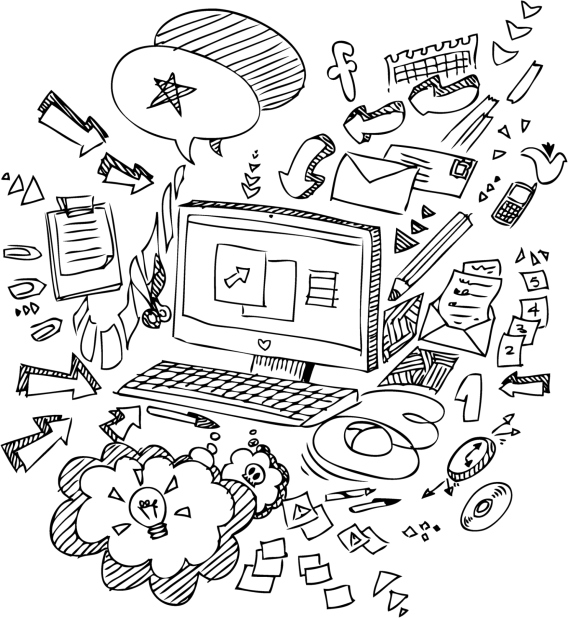 You run into a friend in line at the coffee shop. You ask how they’re doing. Five years ago, I can bet their response would have been “fine!” Today? Everyone’s “busy!”
You run into a friend in line at the coffee shop. You ask how they’re doing. Five years ago, I can bet their response would have been “fine!” Today? Everyone’s “busy!”
No matter who I talk to, everyone struggles with feeling busy. As we’ve become more connected, we’ve also found ourselves time-poor, tapped out, and being asked to do more with less. So, how do we as employees, leaders, community members, spouses, parents and friends maximize the efficiency in every 24 hours while still leading a balanced, happy, healthy life?
It’s not an easy question, and there isn’t an easy answer. But, we all get the same amount of time every day. The differentiator is how you manage those hours. Peak performers learn how to focus on the right things during the day — spending time on things that matter and minimizing all of the distractions in between.
Time management is a critical theme among leaders for many of the companies I support. Spending too much time on the wrong, low-yield activities is one of the biggest reasons I see producers missing their numbers. Usually, it’s not a lack of competence. Instead, the issue is more often how they’re allocating their resources and spending their time.
I’m still learning how to best manage my calendar to create optimal business performance and personal happiness. But, after a very (here comes that word again!) busy 2013, with 80 live events, most of them involving travel, I’ve learned a few tips that help me keep my schedule under control and afford time to enjoy life outside of work.
Here are my 5 time management keys to consider.
1. Have a plan for every day.
If you wake up without a prioritized, scheduled plan for the day, you’re already a step behind. I find it most helpful to organize my day by “day parts” — chunks of time dedicated to my most important priorities.
A good day plan also includes white space. Instead of scheduling back-to-back meetings from 9 a.m. to 5 p.m., give yourself a little time during the day to recharge, think strategically and creatively, and respond to any true crises that may come up. Taking short breaks (to walk around, go outside, or get a glass of water) leaves you refreshed and ready to tackle the next challenge.
2. Schedule time for creative thinking.
On the same note, scheduling dedicated time for creative thinking is something far too few companies include in their best practices. Creativity time should be scheduled and honored just like meeting time.
Here’s an interesting thought for managers: What if you blocked out creative thinking time for your team every week? Let’s say that every Wednesday from 3 to 5, it’s time to think creatively. That means no one’s on the phone, no one’s emailing, no one’s dropping into your office. Instead, your entire team could slow down and focus on idea generation, strategic thinking, brainstorming and connecting the dots.
Most corporate office environments are extremely distracting places and simply aren’t conducive to efficient work output. That’s why more people opt for the coffee shop or home office to handle important work that requires real thought. Introducing some calm, quiet thinking time into the workday chaos can lead to new ideas and energy.
3. Remember wellness.
For me, making time for my own health and wellness is non-negotiable. My workouts are on my calendar, and they don’t get moved. If something is a priority, schedule it. If it’s important to you to exercise, call friends, or go on a date with your significant other, put it on your calendar and give it the space it deserves. Otherwise, it’s easy to lose sight of your priorities and let other (usually work-related) responsibilities drown everything else out.
4. Don’t let your inbox control your day.
Email is one of the biggest time-killers we face. Everyone has experienced accidentally losing an hour or two just by responding to the constant inbox influx.
Instead, take control. Decide when during the day you’re going to check and respond to email. Worried about missing something important? Ask yourself: Which is more important, the prioritized task I’m working on now or the next email that lands in my inbox (whatever that happens to be)? Usually, the inbox loses.
5. Rest.
Everyone needs their own routine for winding down at the end of the day. For me, that means not using technology for the last hour I’m awake. Give yourself a chance to rest and rejuvenate, and give your team the same respect. If you’re consistently sending your employees emails at 1 a.m., consider the example you’re setting.
Creating an efficient, prioritized schedule can actually give you an edge. In a world where everyone loves to talk about how busy they are, the leaders and performers who have clear control over their time have the advantage.
Ryan Estis & Associates is a training and development organization helping companies, leaders, sales people and individual contributors embrace change and achieve breakthrough performance in the new economy. We offer keynotes, live classroom training and online learning that blends interaction, energy and actionable content designed to elevate performance. Contact us for programming inquiries and assistance determining the curriculum that could best support your learning and development objectives.






